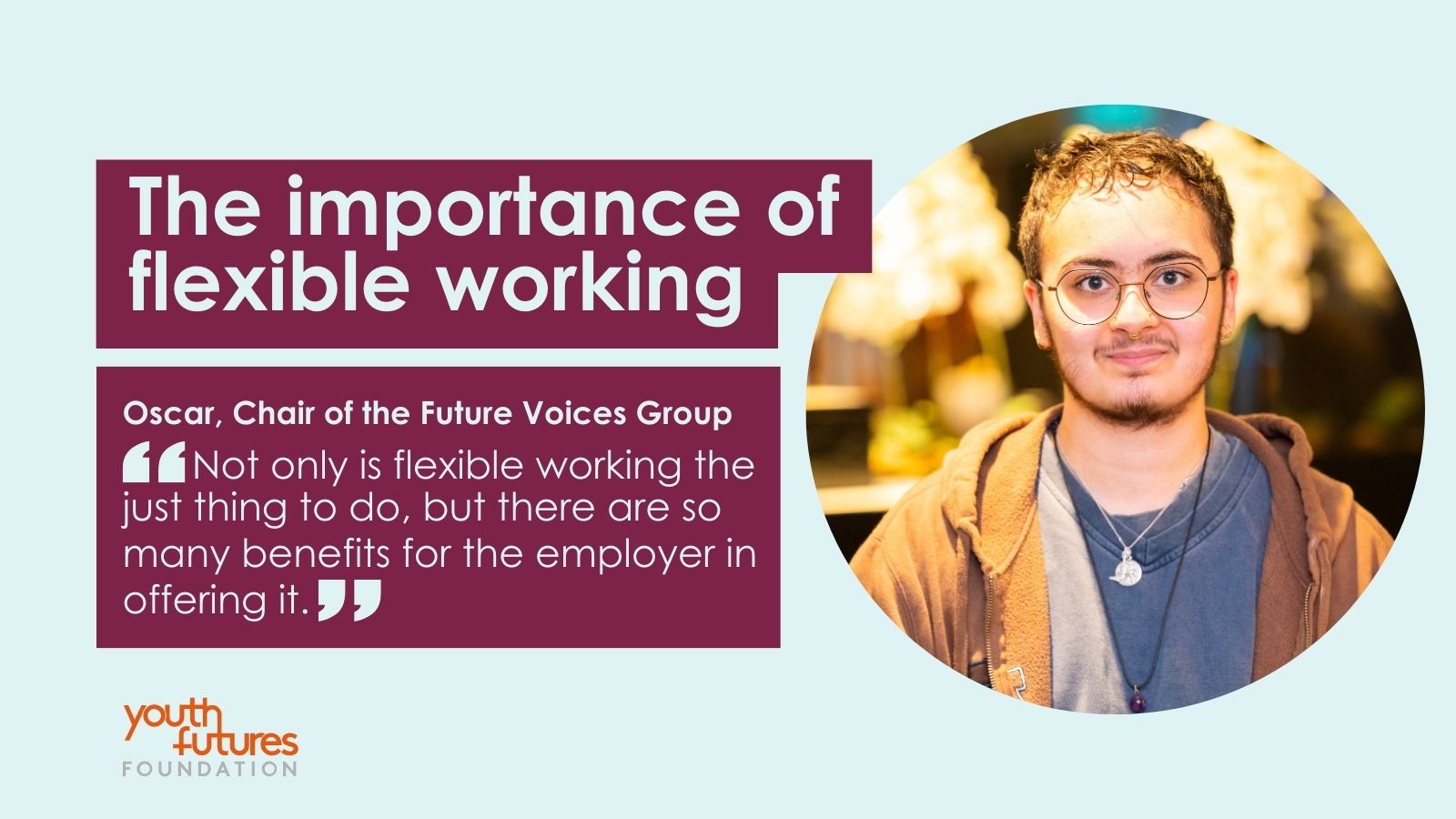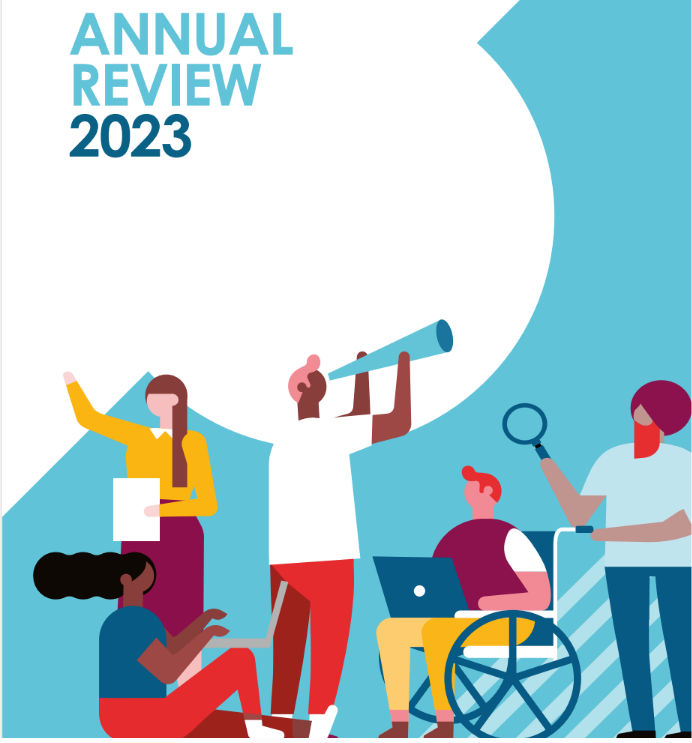The journey towards making flexible work a right for all took a step forward on 6 April as the right to request flexible options from the first day in a job became legislation. Where, how, and when you work should now be seen as a conversation between employer and employee (current and future) offering the opportunity for individuals to better balance work and care, work and health, and work and study.
We recently spoke to the Chair of our Future Voices Group, Oscar, about the importance of flexible working:
As employers reflect on their current practice, in light of these changes, we want to ask that they begin by questioning whether flexible working is truly accessible and open to everyone, including young ethnically minoritised people.
We know from our recent Discrimination and Work report that too many ethnically minoritised young people face significant barriers to gaining and sustaining good jobs. Almost half of the 3,250 respondents (48%) of our annual survey of ethnically minoritised young people reported experiencing prejudice or discrimination when entering the workforce.
Tackling this discrimination is key not only to supporting young people to have successful working lives but to support employers who currently report significant skills and vacancy gaps. The young people who took part in the research believed that policies and procedures that allow for special considerations to be made in recognising the significance of cultural and religious practices with regards to flexible working requests, are the most effective ways to tackle discrimination (our report cites 85% and 83% respectively).
And yet around three out of ten workplaces lacked any policies for flexible working (28%), making the ability to request a variation a real challenge. This Bill formalises the process that enables employees to ask for a change, simplifying things so that onus is not on the individual to prove why but for the employer to prove why not.
Yet we also know that this goes beyond just creating the policy, employers need to create a workplace culture that normalises flexible working and celebrates not where, when or how you work, but the impact of your contributions.
This is especially important when thinking about young people as research from Timewise highlights young people are the most likely to want to work flexibly (for example, 92 per cent of 18-34 year olds compared with 72 per cent of those aged over 55)1, yet younger workers are less likely than older workers to feel comfortable asking for changes to their working arrangements, including asking for more stable employment or flexible and reduced hours2. Despite the demand for the option of flexible working, Timewise went on to report that only 3 in 10 jobs advertised in England spoke about flexible working upfront.
Discrimination has profound personal and career related implications, with 41% of respondents of our Discrimination and Work survey experiencing negative emotional impacts and 71% being motivated to look for opportunities within other industries because of the discrimination they’ve faced. Employers should therefore use this Bill as an opportunity to reach out to all employees but especially young people to make it clear that this is an option and indeed their right to request. Fairer processes and policies will hopefully and inevitably reduce any discrimination and bias in deciding who gets to benefit from flexible working, with the new requirement for mandatory consultation with the employee being a must before an employer rejects a flexible working request.
Even with policies in place, as now required by the law, employers need to consider the behaviours which would enable and increase more individuals from marginalised backgrounds to feel secure in asking for a variation in their working hours, place or contract. Three-quarters of respondents (76%) had experienced feeling that they had to work harder than others to get the same treatment as their colleagues. A similar number said that they felt more closely watched than others (75%).
Flexible working for all is possible. Whether it is achieved or not will rely on employers embracing government legislation with an optimistic mindset and by instilling a culture of open-mindedness and thinking innovatively about the mutual benefits to retaining talent through flexible working offerings that include and indeed target young people.
Oscar, Chair of the Future Voices Group:
“Not only is flexible working the just thing to do, but there are so many benefits for the employer in offering it. If employees are given the respect and flexibility they need to bring their best selves to work, that’s going to make a huge difference, especially in the case of young people who might be balancing education and paid employment with other needs such as disabilities, religious practices or caring responsibilities.”
Further reading that may be useful to employers:
- Normalising flexible working | The Behavioural Insights Team (bi.team)
- Flexible working: Guidance for people professionals on planning and managing | CIPD
- Understanding the Day One right to request flexibility in the context of ethnicity and inclusion – Timewise
- Improving work-life balance for shift workers – Timewise


